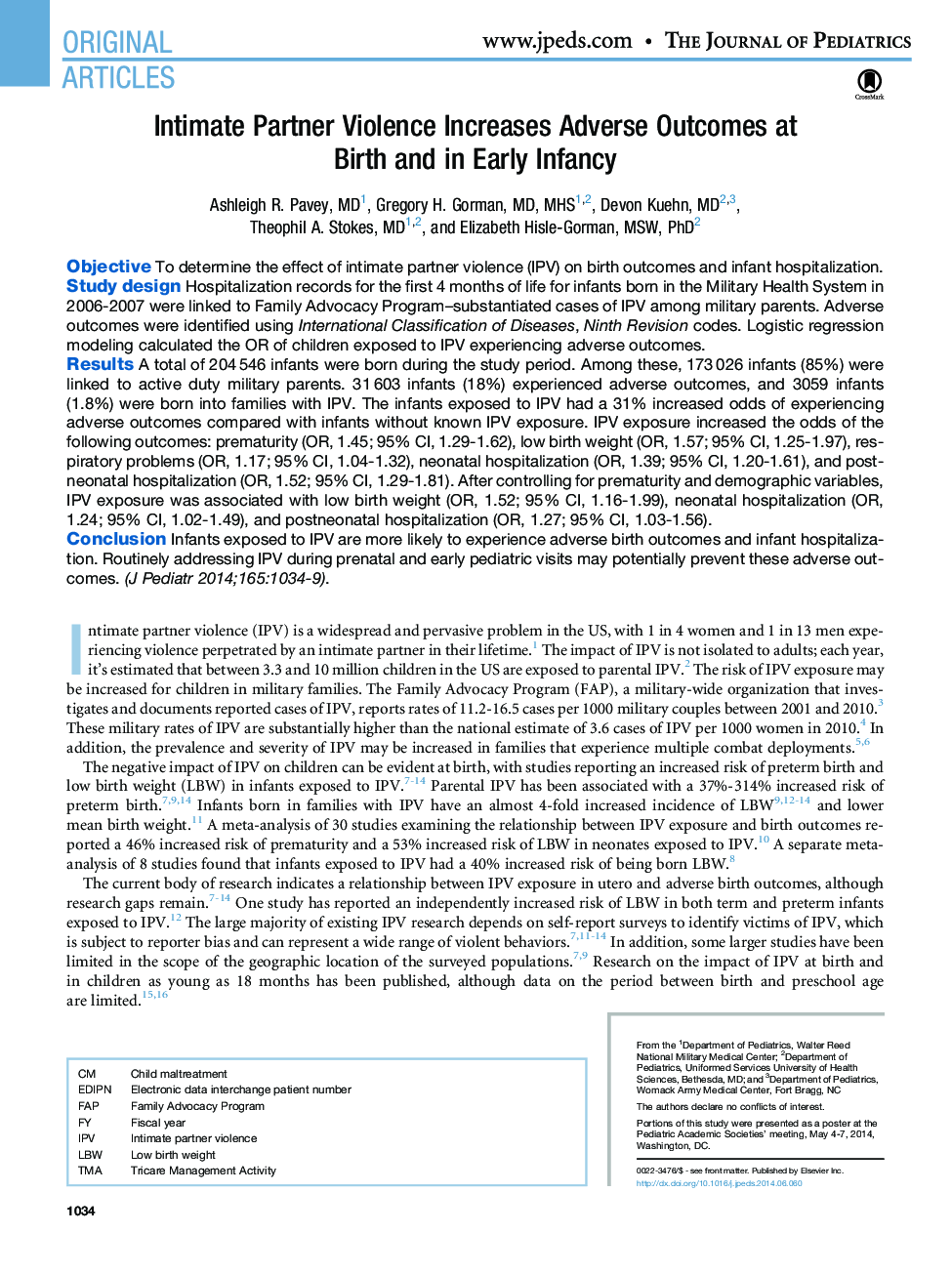| Article ID | Journal | Published Year | Pages | File Type |
|---|---|---|---|---|
| 6222080 | The Journal of Pediatrics | 2014 | 6 Pages |
ObjectiveTo determine the effect of intimate partner violence (IPV) on birth outcomes and infant hospitalization.Study designHospitalization records for the first 4Â months of life for infants born in the Military Health System in 2006-2007 were linked to Family Advocacy Program-substantiated cases of IPV among military parents. Adverse outcomes were identified using International Classification of Diseases, Ninth Revision codes. Logistic regression modeling calculated the OR of children exposed to IPV experiencing adverse outcomes.ResultsA total of 204â546 infants were born during the study period. Among these, 173â026 infants (85%) were linked to active duty military parents. 31â603 infants (18%) experienced adverse outcomes, and 3059 infants (1.8%) were born into families with IPV. The infants exposed to IPV had a 31% increased odds of experiencing adverse outcomes compared with infants without known IPV exposure. IPV exposure increased the odds of the following outcomes: prematurity (OR, 1.45; 95% CI, 1.29-1.62), low birth weight (OR, 1.57; 95% CI, 1.25-1.97), respiratory problems (OR, 1.17; 95% CI, 1.04-1.32), neonatal hospitalization (OR, 1.39; 95% CI, 1.20-1.61), and postneonatal hospitalization (OR, 1.52; 95% CI, 1.29-1.81). After controlling for prematurity and demographic variables, IPV exposure was associated with low birth weight (OR, 1.52; 95% CI, 1.16-1.99), neonatal hospitalization (OR, 1.24; 95% CI, 1.02-1.49), and postneonatal hospitalization (OR, 1.27; 95% CI, 1.03-1.56).ConclusionInfants exposed to IPV are more likely to experience adverse birth outcomes and infant hospitalization. Routinely addressing IPV during prenatal and early pediatric visits may potentially prevent these adverse outcomes.
